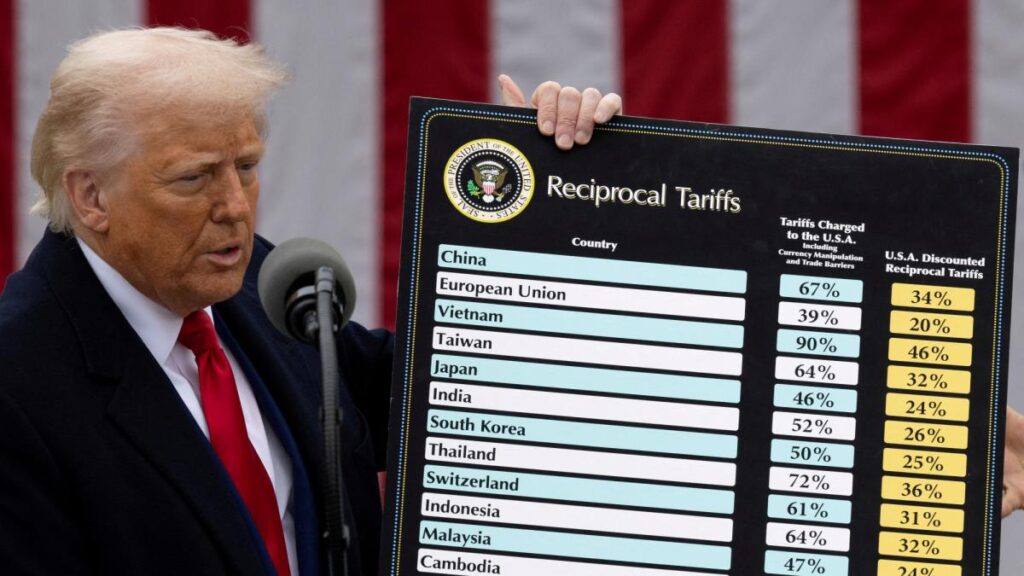Background on Key Players and Context
The ongoing trade war between the United States and China has seen both nations imposing tariffs on each other’s goods. President Donald Trump has been at the forefront of this conflict, imposing tariffs ranging from 10% to a steep 145% on Chinese imports. In response, China has imposed tariffs up to 125% on U.S. products.
Donald Trump, the 45th President of the United States, took office in January and has been aggressively pursuing a trade war with China. His actions have significantly impacted global markets, causing investors to abandon U.S. assets following his tariff announcements.
Xi Jinping, the President of China, has also voiced concerns about the trade war, stating that such conflicts undermine the legitimate rights and interests of all countries, damage multilateral trade systems, and affect the global economic order.
Recent Developments and Statements
On Wednesday, China expressed its openness to engage in trade talks with the United States regarding tariffs. This comes after President Trump hinted at the possibility of an agreement, raising hopes for a potential de-escalation in trade tensions.
Trump acknowledged that a 145% tariff level is “very high” and will be “substantially reduced,” though it won’t reach zero. This statement has encouraged global financial markets, especially after Trump clarified he had “no intention” of dismissing Federal Reserve Chair Jerome Powell.
Impact on Financial Markets
Trump’s softer stance on tariffs and Powell has positively influenced financial markets. European markets opened higher, with Paris up 1.5%, Frankfurt rising 2.4%, and London increasing by 1.2%. Milan also gained 1.1% in early trading.
Reversal of Tariff Threats
At a closed-door event organized by JP Morgan Chase in Washington, U.S. Treasury Secretary Scott Bessen stated that tariffs equate to a mutual trade embargo. Meanwhile, White House spokesperson Karoline Leavitt reported that the U.S. government is “doing well regarding a potential trade agreement with China.”
Trump’s shift in tone towards both tariffs and Federal Reserve Chair Jerome Powell has contributed to a more stable market environment. Previously, Trump had criticized Powell’s monetary policy and warnings about inflation caused by tariffs, leading to a decline in the three major U.S. stock indexes.
Powell’s Warnings on Trade War Impact
Jerome Powell, whose second term as Federal Reserve Chair extends until May 2026, has cautioned that Trump’s trade war could significantly burden the U.S. economy.
The International Monetary Fund (IMF) now projects the U.S. economy to grow by 1.8% this year, down from its previous January estimate of 2.7%. This revision reflects the potential negative impact of the trade war on the U.S. economy.
A rapid series of interest rate cuts by the Federal Reserve could stimulate economic growth by making credit more accessible. However, this approach also risks increasing prices and exacerbating inflationary effects caused by tariffs.
Key Questions and Answers
- Q: Who are the key players in this trade war? A: The main parties involved are U.S. President Donald Trump and Chinese President Xi Jinping.
- Q: What tariffs have been imposed by each country? A: The U.S. has imposed tariffs ranging from 10% to 145% on Chinese goods, while China has retaliated with tariffs up to 125% on U.S. products.
- Q: How have these tariffs affected global markets? A: The ongoing trade war has caused investors to abandon U.S. assets, impacting global financial markets.
- Q: What is the current stance of both countries regarding trade talks? A: China has expressed openness to engage in trade talks with the U.S., while Trump has hinted at a potential agreement, raising hopes for de-escalation.
- Q: How has President Trump’s tone changed regarding tariffs and the Federal Reserve? A: Trump has softened his stance on tariffs and expressed no intention of dismissing Federal Reserve Chair Jerome Powell, contributing to a more stable market environment.






